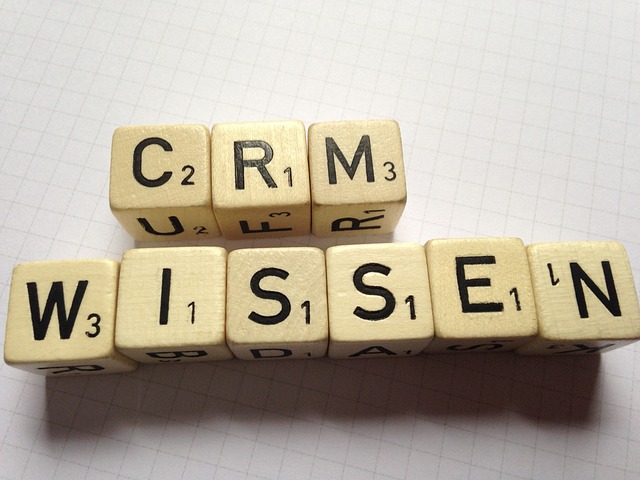Understanding CRM Tools
CRM tools, or Customer Relationship Management tools, are essential for businesses aiming to enhance their customer relationships. They offer a systematic approach to manage interactions with current and potential customers. Imagine a bustling marketplace. All vendors try to grab the attention of passersby, but only those who engage effectively seem to attract loyal customers. In the digital landscape, CRM tools serve as the vendors’ brains, organizing insights and guiding interactions, thereby making every encounter count. By consolidating customer information into a singular platform, these tools help in understanding customer needs, behaviors, and preferences, which plays a pivotal role in building long-lasting relationships.
For entrepreneurs, utilizing CRM tools can be a game-changer. Gone are the days when managing customer information meant sifting through piles of paperwork or maintaining complex spreadsheets. With the right CRM tool, you can automate numerous processes that not only save time but also ensure accuracy. Imagine being able to monitor sales pipelines, track customer interactions, and analyze data—all from one dashboard. This convenience empowers businesses to deliver personalized experiences that resonate with customers. In today’s competitive environment, the question isn’t whether to adopt CRM tools; it’s which one aligns best with your business needs.
The Benefits of CRM Tools for Enhancing Customer Relationships
So, how do CRM tools enhance customer relationships? The benefits are manifold. First off, they provide a 360-degree view of the customer. This means that every interaction—be it a phone call, an email, or a social media engagement—gets logged into the system. Such comprehensive data allows businesses to tailor their communication strategy effectively. Picture this: a customer calls in about an issue they faced a week ago. With robust CRM tools, you can access their previous interactions instantly. It makes the customer feel heard and valued, playing a crucial role in relationship-building.
Moreover, CRM tools aid in segmenting your audience. This capability allows businesses to target specific groups effectively. Think about how a clothing brand could target young professionals with a new line designed for office wear versus casual styles aimed at students. By utilizing CRM tools, companies can run targeted campaigns, ensuring that the right message reaches the right people, thereby improving engagement rates. Personalized marketing leads to a significant spike in conversion rates, as customers feel more connected to the brand. In essence, CRM tools enable you to dive deeper into analytics, helping you refine your marketing strategies to better align with customer preferences.
Choosing the Right CRM Tool for Your Business
With numerous CRM tools available, pinpointing the right one might seem daunting, especially for budding entrepreneurs. Key aspects to consider include ease of use, integration capabilities, and scalability. Imagine you’re setting up a cozy café and you need a tool to keep track of your regulars, their preferences, and order history. A simple, user-friendly CRM tool that integrates smoothly with your point-of-sale system would be essential. What good is a sophisticated tool if your team struggles to navigate through it? Therefore, prioritize user-centric designs that foster adoption among your staff.
Next, consider how well the CRM tool integrates with existing systems. Whether it’s your email provider, accounting software, or social media platforms, seamless integration plays a critical role in ensuring a fluid workflow. Finally, as your business grows, your CRM needs may evolve. Choosing a scalable solution allows you to add more features as required without having to switch platforms constantly. A tool that grows with you ensures you can continue nurturing customer relationships effectively.
Implementing CRM Tools in Your Business
Once you’ve chosen the perfect CRM tool, implementing it within your business is the next essential step. Begin by gathering your team for an initial training session. This is an opportunity to not only introduce the software but to explain the rationale behind its adoption. Teams often feel more engaged when they understand the ‘why’ behind a tool’s implementation. During training, emphasize the features that will make their jobs easier—like automated follow-ups, bulk email sends, or customer insights that help in crafting personalized responses.
In addition, ensure that you set clear targets and expectations from the new system. For instance, you might aim to reduce customer query resolution time by a certain percentage within three months. Establishing measurable goals helps maintain motivation and focus as your team begins to adapt to the new system. Moreover, encourage feedback. Some team members might discover different ways to utilize the tool, and sharing these insights can boost overall effectiveness. Ultimately, creating an environment of open communication regarding the tool’s usage can aid in a smoother transition.
Leveraging Data for Customer Insights
CRM tools function as treasure troves of data. After implementation, focus on data analysis to derive actionable insights. For example, the analytics dashboards in most CRM tools can identify trends in customer behavior. Maybe you discover that certain products see a spike in interest during specific months. This information becomes crucial for planning inventory and marketing strategies. Evaluate your customers’ purchasing patterns, and use this knowledge for targeted promotions or even product recommendations.
Additionally, conduct regular reviews of the data collected. Monitoring customer satisfaction scores, feedback loops, and repeat purchase rates can offer a fascinating glimpse into your business’s pulse. If you notice a decline in customer engagement, dive deep into the data. Try to identify the underlying reasons. Is it a lack of interaction? Are your competitors providing better engagement? Understanding such nuances can direct your focus on necessary improvements. Remember, each piece of data tells a story, and it’s essential to listen to what your customers are saying.
Enhancing Communication through CRM Tools
Effective communication stands at the heart of any successful customer relationship. CRM tools bolster communication by streamlining interaction channels. You can utilize built-in messaging features for quick responses, ensuring customers feel valued and acknowledged. An immediate response often converts curious prospects into loyal patrons. Moreover, CRM tools allow for scheduled follow-ups, ensuring no customer query falls through the cracks.
Think of it this way: after an initial consultation, you can set a prompt for a follow-up call a week later. This proactive approach often impresses customers, as it illustrates an invested interest in their needs and concerns. Furthermore, CRM systems can automate emails to provide updates, newsletters, and promotional content too. Customization options make it easy to segment these communications, enhancing the likelihood of customer engagement. As a result, building steady communication not only nurtures relationships but also fortifies brand loyalty.
Measuring Success with CRM Tools
As you embark on the journey of utilizing CRM tools, measuring success becomes crucial. After implementing such a system, set KPIs (Key Performance Indicators) to quantify objectives. You could measure customer retention rates, sales growth, or increases in average order value. For instance, if your retention rates increase post-implementation, it might indicate that your CRM tool is enhancing customer satisfaction through effective communication and personalized attentiveness.
Additionally, analyze lead conversion rates. If you find that leads generated through your CRM tool convert into paying customers more often than before, that’s a strong indicator of success. Continuous monitoring ensures that you remain on the right track. It allows businesses to pivot strategies quickly in response to shifts in data. Celebrate the small wins, too! Recognizing improvements boosts team morale and fosters a culture of performance driven by strong customer relationships.
Continuous Learning and Improvement
Adopting CRM tools isn’t a one-time event; it requires a commitment to continuous learning. The digital landscape evolves constantly, and so do customer expectations. Regularly updating your team’s skills through training sessions keeps everyone aligned with the latest features and best practices. Encourage a culture of sharing insights and feedback regarding tool usage, too. The experiences of one team member can provide invaluable lessons for others, creating a collaborative environment.
Moreover, stay updated with industry trends. Whether it involves regular webinars, reading relevant articles, or joining CRM-focused forums, immersing yourself in the latest developments ensures your business adapts effectively. Solicit feedback from your customers as well. After all, customer perceptions shape your brand. Create surveys or feedback forms to assess their satisfaction levels and areas where you can improve. Implementing changes based on actual customer feedback demonstrates a commitment to nurturing relationships, reinforcing brand loyalty.
FAQ
What are CRM tools?
CRM tools are software solutions designed to manage a company’s interactions with current and potential customers. They help businesses streamline processes, improve customer service, and increase sales through data organization and analysis.
How can CRM tools enhance customer relationships?
CRM tools enhance customer relationships by providing a comprehensive view of customer interactions, allowing for personalized communication and targeted marketing efforts. They automate follow-ups and help businesses understand customer needs better.
What should I look for in a CRM tool?
When selecting a CRM tool, consider factors like user-friendliness, integration capabilities with existing systems, scalability for future growth, and the specific features that align with your business goals.
How can I measure the success of using CRM tools?
You can measure the success of CRM tools by tracking key performance indicators such as customer retention rates, lead conversion rates, and overall sales growth after implementation.
Is continuous training necessary for CRM systems?
Yes, continuous training and education are essential for maximizing the benefits of CRM systems. Regular training keeps your team updated on new features and best practices, ensuring effective utilization of the tool.



